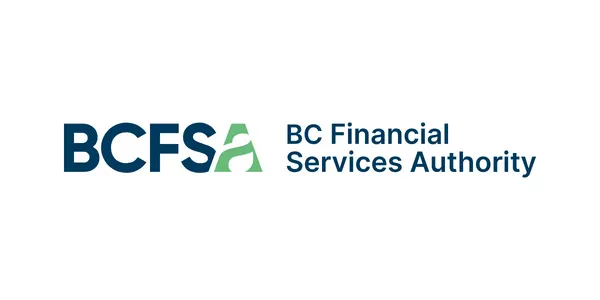Buying a home

Buying a home is an exciting life event. Learn the key factors to consider before you make an offer, and the steps involved in buying a home in British Columbia.
What you should know
You may decide to look for a home on your own. But buyers don’t typically have to pay to use a real estate agent. And there are lots of advantages to working with one. A good agent can:
help you clarify the type of home you need and can afford
connect you to networks of potential sellers
help you make a written offer to purchase
explain the steps to complete the purchase
Before you start looking for a new home, consider how much you can afford to pay. You’ll be paying a large amount of your own cash right at the start. This will include:
The down payment. The portion of the purchase price you pay yourself.
Closing costs. The costs associated with buying a new home. The BC Financial Services Authority has more information about closing costs.
There are also ongoing costs you’ll need to budget for:
Monthly mortgage payments. Most people need to borrow a lot of money to cover the rest of the purchase price. You’ll pay the lender back (typically monthly), with interest. This arrangement is called a mortgage.
The costs of owning. These include property taxes, home maintenance, home insurance, utilities, and (if you buy into strata housing) strata fees.
If you find a home you want to buy, you must make a written offer to buy it. A realtor can provide a form called a contract of purchase and sale. Here, learn what it covers. Read the contract carefully, as this offer can lead to a legally binding contract.
You can add “subject to” clauses to your offer. These spell out the conditions that must be met before a sale proceeds. Adding conditions gives you the right to back out of the sale if you can’t satisfy them. Add a deadline for each condition. For example, you can make your offer subject to selling your current home by a certain date.
The purchase contract is legally binding on the seller as soon as an offer or counteroffer is accepted in writing. This means they can’t cancel the contract without consequences.
As the buyer, once an offer or counteroffer is accepted, you have up to three business days to cancel the contract. This is known as the cooling-off period. (For most pre-sale contracts, the cooling-off period is seven days.) The cooling-off period applies to the sale of most residential real property in BC, but there are some exceptions. If you change your mind, you’ll have to pay a fee of 0.25% of the purchase price to the seller.
If you added “subject to” clauses to your offer, you can walk away if you can’t satisfy the conditions. If you are able to satisfy the conditions, tell the seller straight away in writing. You can also choose to go ahead with the sale even if you couldn’t satisfy the conditions. Note that the three-day cooling-off period runs at the same time as any subject conditions.
Buying a home is a major expense and a complicated process. To protect yourself, consider using a lawyer or notary public. You can expect to pay about $1,000 to $1,500 for a lawyer or notary to help with buying a home. If you need specific legal advice, it will cost more. You can call around for a quote.
Overview to buying a home
Decide if you are going to look for a home on your own or hire a real estate agent. It’s important to pick someone you trust and are comfortable with. Ask them about their experience with the area and type of property (such as strata housing). You can find a professional on the BC Financial Services Authority site to see if an agent is currently licensed.
When you find a home you want to buy, make an offer to purchase. A realtor can help you write up the offer on the local real estate board’s contract of purchase and sale form. Include any conditions that are important to you, as discussed above.
If you’re in the market for strata housing, see our information on buying a condo or other strata housing.
Most people need to borrow money to buy a home. It’s a good idea to get pre-approved for a mortgage before making an offer. This will give you an idea of what you likely can afford before you lock yourself into a deal. Shop around for the best terms. This page on getting a mortgage explains what to expect when you meet a lender or broker.
Once you’ve signed a contract for purchase and sale, reach out to your preferred lender. The lender may require certain documents before locking in their promise to lend you funds.
If you’ve added conditions to your offer, you’ll need to remove them before the agreed-upon deadlines. For example, many buyers make the offer subject to getting loan approval. If you’re able to satisfy all of the conditions, give the seller written notice that you’re removing the subject to clauses. If you can’t satisfy the conditions, the contract ends.
Most home buyers hire a lawyer or notary to help draw up the legal documents. Here’s a breakdown of the paperwork involved.
Your lawyer or notary will prepare the transfer documents and send them to the seller. The seller signs and returns the documents. When your lawyer or notary has your down payment money and the commitment letter from your lender, they register the transfer documents and the mortgage with the land title office.
When the land title office confirms the registration of the transfer documents (and your financing cheque has arrived), your lawyer or notary gives the purchase money to the seller.
The realtor is then instructed to give you the keys to the home. Enjoy!
Who can help

BC Financial Services Authority home buyer's guide
The body that licenses realtors in BC offers a guide on buying a home.
This information from People’s Law School explains in a general way the law that applies in British Columbia, Canada. The information is not intended as legal advice. See our disclaimer.
Related
On Dial-A-Law
Dial-A-Law has more information on Buying or selling a home in the section on Home & neighbours.


